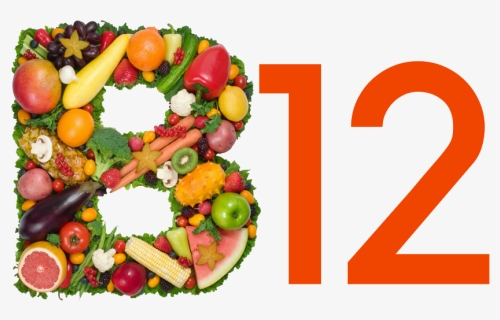Vitamin B12

Vitamin B12, also known as cobalamin, is a water-soluble vitamin involved in metabolism. It is one of eight B vitamins. It is required by animals, which use it as a cofactor in DNA synthesis. It is important in the normal functioning of the nervous system via its role in the synthesis of myelin, and in the circulatory system in the maturation of red blood cells in the bone marrow. Vitamin B12 is the most chemically complex of all vitamins, and for humans, the only vitamin that must be sourced from animal-derived foods or supplements.
Causes of Vitamin B12 Deficiency
· Impaired absorption due to a loss of gastric intrinsic factor (IF) which must be bound to a food-source of B12 in order for absorption to occur.
- Age-related decline in stomach acid production
- Long-term antacid therapy
- Using proton-pump inhibitor
- H2 blockers or other antacids are at increased risk.
Symptoms
Deficiency in vitamin B12 may be characterized by limb neuropathy or a blood disorder called pernicious anemia, a type of megaloblastic anemia, causing a feeling of tiredness and weakness, lightheadedness, headache, breathlessness, loss of appetite, pins and needles sensations, changes in mobility, severe joint pain, muscle weakness, memory problems, decreased level of consciousness, etc.
Those not consume any animal-sourced foods—are at risk because plant-sourced foods do not contain the vitamin in sufficient amounts to prevent vitamin deficiency
Importance of Vitamin B12
- Needed to form red blood cells and DNA
- Plays important role in the function and development of brain and nerve cells
- Vitamin B12 binds to the protein in the foods we eat
Sources
- Naturally present in animal origin food
- Fish
- Meat
- Eggs
- Dairy products
- Banana, apples, berries etc.
No comments:
Post a Comment